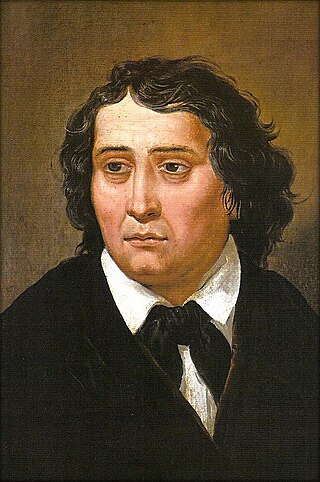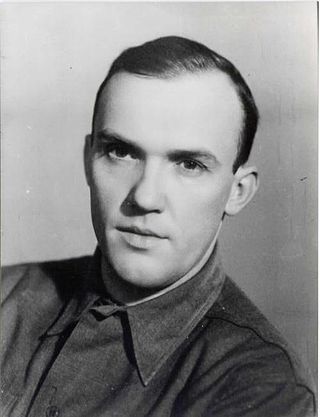Related Research Articles

Maribor is the second-largest city in Slovenia and the largest city of the traditional region of Lower Styria. It is the seat of the Urban Municipality of Maribor and the Drava statistical region. Maribor is also the economic, administrative, educational, and cultural centre of eastern Slovenia.

Slovenia officially the Republic of Slovenia is a country in Central Europe. It borders Italy to the west, Austria to the north, Hungary to the northeast, Croatia to the south and southeast, and a short coastline within the Adriatic Sea to the southwest, which is part of the Mediterranean sea. Slovenia is mostly mountainous and forested, covers 20,271 square kilometres (7,827 sq mi), and has a population of approximately 2.1 million. Slovene is the official language. Slovenia has a predominantly temperate continental climate, with the exception of the Slovene Littoral and the Julian Alps. Ljubljana, the capital and largest city of Slovenia, is geographically situated near the centre of the country. Other larger urban centers are Maribor, Kranj, Celje and Koper.
The history of Slovenia chronicles the period of the Slovenian territory from the 5th century BC to the present. In the Early Bronze Age, Proto-Illyrian tribes settled an area stretching from present-day Albania to the city of Trieste. The Slovenian territory was part of the Roman Empire, and it was devastated by the Migration Period's incursions during late Antiquity and the Early Middle Ages. The main route from the Pannonian plain to Italy ran through present-day Slovenia. Alpine Slavs, ancestors of modern-day Slovenians, settled the area in the late 6th Century AD. The Holy Roman Empire controlled the land for nearly 1,000 years. Between the mid-14th century through 1918 most of Slovenia was under Habsburg rule. In 1918, most Slovene territory became part of the Kingdom of Serbs, Croats, and Slovenes, and in 1929 the Drava Banovina was created within the Kingdom of Yugoslavia with its capital in Ljubljana, corresponding to Slovenian-majority territories within the state. The Socialist Republic of Slovenia was created in 1945 as part of federal Yugoslavia. Slovenia gained its independence from Yugoslavia in June 1991, and today it is a member of the European Union and NATO.
Delo is a national daily newspaper in Slovenia. For more than 60 years, Delo has been involved in active co-creation of the Slovenian public space. It covers politics, economics, sports, culture and social events in Slovene. In addition to Slovenia, the paper is available in several Croatian cities and in Belgrade, Serbia. It is based in Ljubljana.

France Prešeren was a 19th-century Romantic Slovene poet whose poems have been translated into many languages.

"Naprej, zastava slave" or "Naprej, zastava Slave" is a former national anthem of Slovenia, used from 1860 to 1989. It is now used as the official service song of the Slovenian Armed Forces and as the anthem of the Slovenian nation.

Radiotelevizija Slovenija – usually abbreviated to RTV Slovenija – is Slovenia's national public broadcasting organization.

Aleš Debeljak was a Slovenian cultural critic, poet, and essayist.

Drago Jančar is a Slovenian writer, playwright and essayist. Jančar is one of the most well-known contemporary Slovene writers. In Slovenia, he is also famous for his political commentaries and civic engagement. Jančar's novels, essays and short stories have been translated into 21 languages and published in Europe, Asia and the United States. The most numerous translations are into German, followed by Czech and Croatian translations. His dramas have also been staged by a number of foreign theatres, while back home they are frequently considered the highlights of the Slovenian theatrical season. He lives and works in Ljubljana.
The Croats are an ethnic group in Slovenia. In the 2002 census 35,642 citizens of Slovenia identified themselves as Croats, making them second most-populous non-Slovene ethnic group in Slovenia. Despite their centuries-old presence, Croats do not have the status of a national minority.

Slovene culture is the culture of the Slovenes, a south Slavic ethnic group. It is incredibly diverse for the country's small size, spanning the southern portion of Central Europe, being the melting pot of Slavic, Germanic and Romance cultures while encompassing parts of the Eastern Alps, the Pannonian Basin, the Balkan Peninsula and the Mediterranean.

Matej Bor was the pen name of Vladimir Pavšič, who was a Slovene poet, translator, playwright, journalist and Partisan.

The Slovene Society is the second-oldest publishing house in Slovenia, founded on 4 February 1864 as an institution for the scholarly and cultural progress of Slovenes.
Spomenka Hribar is a Slovenian author, philosopher, sociologist, politician, columnist, and public intellectual. She was one of the most influential Slovenian intellectuals in the 1980s, and was frequently called "the First Lady of Slovenian Democratic Opposition", and "the Voice of Slovenian Spring" She is married to the Slovenian Heideggerian philosopher Tine Hribar.

The Ljubljana Slovene National Theatre Opera and Ballet, or shortly Ljubljana SNG Opera and Ballet, is Slovenia's national opera and ballet company. Its seat is the Ljubljana Opera House at 1 Župančič Street in Ljubljana. The Ljubljana Slovene National Theatre Opera and Ballet was founded in 1918. It is now a subsection of the Slovene National Drama Theatre in Ljubljana (Slovensko narodno gledališče and has about 50 dancers. Since 2013, its director has been the lawyer Peter Sotošek Štular, and its artistic director the opera stage director Rocc.

Kresnik is a literary award in Slovenia awarded each year for the best novel in Slovene of the previous year. It has been bestowed since 1991 at summer solstice by the national newspaper house Delo. The awards ceremony is normally held on Rožnik Hill above Ljubljana where the winner is invited to light a large bonfire. The winner also receives a financial award.
Nova revija is a Slovene language literary magazine published in Slovenia.
The Bukla Magazine is a free Slovenian monthly magazine in which current Slovene non-fiction and fiction books are reviewed.

Erica Johnson Debeljak is an American-Slovenian writer and translator, an American expatriate living in Slovenia.
Razpotja is a Slovenian quarterly cultural magazine, part of the Eurozine network of European magazines.
References
- 1 2 3 4 5 6 "Dialogi". Eurozine. 5 April 2023. Retrieved 31 December 2023.
- 1 2 Michael Biggins; Janet Crayne (2000). Publishing in Yugoslavia's Successor States. Binghamton, N.Y.: Haworth Press. p. 31. ISBN 978-0-7890-1046-9.
- 1 2 3 4 "Dialogi Journal". culture.si. Retrieved 31 December 2023.
- ↑ "Slovenian Literature Evening with Erica Johnson Debeljak and Lukas Debeljak, 26 October 2023, 6pm, London". The British-Slovene Society. 19 October 2023. Retrieved 31 December 2023.